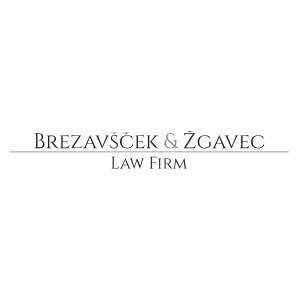Best Bankruptcy Lawyers in Slovenia
Share your needs with us, get contacted by law firms.
Free. Takes 2 min.
Or refine your search by selecting a city:
List of the best lawyers in Slovenia
About Bankruptcy Law in Slovenia
Bankruptcy law in Slovenia is designed to address the financial distress of individuals and companies unable to meet their debt obligations. The law provides a legal framework for either restructuring debts to allow individuals or entities to regain solvency or liquidating assets to ensure a fair distribution to creditors. Since joining the European Union, Slovenia’s bankruptcy laws align with EU standards, ensuring fair and transparent processes.
Why You May Need a Lawyer
Legal assistance can be crucial during bankruptcy proceedings for several reasons. Firstly, lawyers help navigate the complex legal framework and procedures involved in bankruptcy cases. They ensure that all legal requirements are met to protect the client's interests. Common situations requiring legal help include facing creditor lawsuits, needing to file for bankruptcy protection, or managing complex insolvency issues. Legal guidance is also important in defending against fraudulent claims or negotiating debt settlements.
Local Laws Overview
Key aspects of Slovenia’s bankruptcy laws include the prioritization of creditor claims, the possibility of debt restructuring or liquidation, and the emphasis on transparency. The process involves court supervision and detailed procedures to follow, starting from the filing of bankruptcy to resolution. Slovenia also has specific provisions for personal and corporate bankruptcies, with different implications and outcomes based on the debtor's status. Special attention is given to the fair treatment of creditors and the reintegration of solvent businesses back into the market.
Frequently Asked Questions
What is the first step in filing for bankruptcy in Slovenia?
To file for bankruptcy, you must submit a formal petition to the court. This can be initiated by the debtor or creditors depending on the circumstances.
How does bankruptcy affect personal credit ratings?
Bankruptcy can significantly affect your credit rating, making it difficult to obtain loans or credit for a period of time after the process is completed.
What is the difference between personal and corporate bankruptcy?
Personal bankruptcy deals with individual debts and involves liquidating personal assets, whereas corporate bankruptcy involves reorganization or liquidation of a company’s assets.
Can bankruptcy help in stopping creditors from collecting debts?
Yes, filing for bankruptcy typically results in an automatic stay, which prevents creditors from continuing collection activities.
What are the typical costs associated with filing for bankruptcy?
The costs can include court fees, attorney fees, and other administrative expenses related to the processing of the bankruptcy case.
Are all debts dischargeable in bankruptcy?
No, certain debts such as child support, alimony, and some taxes are not dischargeable in bankruptcy proceedings.
How long does the bankruptcy process take in Slovenia?
The duration depends on the complexity of the case but generally can range from a few months to several years.
Can foreign creditors participate in bankruptcy proceedings?
Yes, foreign creditors can participate, but they must adhere to Slovenian legal procedures and timelines.
What happens if a bankruptcy agreement is violated?
Violation of a bankruptcy agreement can lead to new legal actions against the debtor, including the potential revocation of the bankruptcy discharge.
Is debt restructuring an option in Slovenian bankruptcy cases?
Yes, debt restructuring is an available option, allowing debtors to renegotiate terms and potentially reduce debt burdens while remaining operational.
Additional Resources
Individuals seeking more information on bankruptcy in Slovenia can consult resources such as the Slovenian Chamber of Commerce, the Ministry of Justice, and legal aid organizations that provide guidance and assistance in bankruptcy matters. The Slovenian Securities Market Agency can also be a helpful resource for cases involving corporate bankruptcy.
Next Steps
If you require legal assistance with bankruptcy, the first step is to consult with a specialized bankruptcy lawyer. They can provide initial advice on your situation and represent your interests throughout the proceedings. It is also beneficial to gather all financial documentation and any prior legal correspondence related to debts. Where possible, engage in discussions with your creditors to explore possible out-of-court settlements. Ultimately, ensuring you have professional guidance can significantly impact the outcome of bankruptcy proceedings.
Lawzana helps you find the best lawyers and law firms in Slovenia through a curated and pre-screened list of qualified legal professionals. Our platform offers rankings and detailed profiles of attorneys and law firms, allowing you to compare based on practice areas, including Bankruptcy, experience, and client feedback.
Each profile includes a description of the firm's areas of practice, client reviews, team members and partners, year of establishment, spoken languages, office locations, contact information, social media presence, and any published articles or resources. Most firms on our platform speak English and are experienced in both local and international legal matters.
Get a quote from top-rated law firms in Slovenia — quickly, securely, and without unnecessary hassle.
Disclaimer:
The information provided on this page is for general informational purposes only and does not constitute legal advice. While we strive to ensure the accuracy and relevance of the content, legal information may change over time, and interpretations of the law can vary. You should always consult with a qualified legal professional for advice specific to your situation.
We disclaim all liability for actions taken or not taken based on the content of this page. If you believe any information is incorrect or outdated, please contact us, and we will review and update it where appropriate.
Browse bankruptcy law firms by city in Slovenia
Refine your search by selecting a city.














